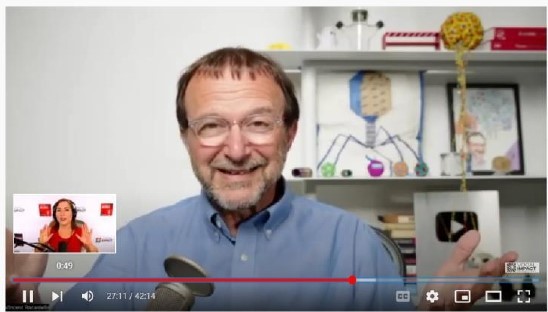I often find myself in what many might think is an awkward position:
I have to demonstrate my ignorance.
My biggest clients are leaders in areas ranging from cybersecurity and asset management to construction and pharmaceutical research, all industries in which I know next to nothing, in the grand scheme of things.
So when they want help preparing for conference talks, media interviews, public info webinars, or even presentations to internal clients in different divisions, they need to figure out how to clearly explain the most important – and often the most technical – issues to a diverse audience with an extremely wide range of technical knowledge, sophistication, and interest in those technical details, and ensure that everyone gets it.
How do we measure that success?
Simple: I leverage my ignorance.
More specifically: I listen to each key point, and feed back to them what I understand them to have said. As long as there’s still something I’m clearly not getting – for whatever reason – we need to keep working on it.
NOT until I’ve learned enough about the topic, but until THEY’VE finally figured out how to explain the concept, tell the story, contextualize the issue, or interpret the data without talking down to me or over my head, but in a way that makes me (and any other non-expert in the audience) say, “OH, now I get it!”
When I can summarize what I’ve heard well enough that they can say, “Yes, that’s it!” then and only then can we move on.
I don’t recall who originally said it, but one of my favorite phrases is:
“A teacher is someone who is good at
explaining things to people
who are not good at understanding,
and is good at understanding people
who are not good at explaining.”
That’s a perfect description of my guest on this week’s episode of the Speaking to Influence podcast.
Dr. Vincent Racaniello, a.k.a. “The Earth's Virology Professor,” is an award-winning professor of virology (the study of viruses) at Columbia University, who has not one but SEVEN concurrent podcasts, including “This Week in Virology,” which has been running weekly since 2008 – that’s 15 years – with over 924 episodes to date!
But what’s more important for our purposes, is that these podcasts are NOT “by scientists, for scientists.” On the contrary, the intention of each series is to make the most cutting-edge research on these topics available, intelligible, and interesting to the general public.

That’s why in this episode, we spent our time talking about how he changes his communication style as an on-going experiment with the seven different podcasts, to see what works best.
Ironically, having the “power combo” of both confidence and humility also allows him to admit (without shame, and without losing status) when he does NOT know the answer to a question – whether because he doesn’t have it but will do his best to find out, or simply because as of yet there IS no available answer.
Beyond that, Vincent shared his “must-do” list for anyone who wants to be a thought leader with an ever-widening sphere of influence, and you’d better believe it includes:
- Be able to translate your expertise
- Make it relevant
- Don’t talk over the heads or down to people who do not share your level of expertise
- Have fun
- Share your passion
Why? Because, as he put it: “The best thing that you can do is share what you know with others and empower them.”
Listen to the full conversation here or watch it on YouTube here.
Vincent recently was awarded the Richard Ernst medal for science communication in the Netherlands. You can listen to his acceptance speech here, about how scientists can and must communicate their findings to the public. The part on podcasting starts at about 32:20. I confess, I never thought I’d listen to an entire lecture on virus communication (including NON-POLITICAL coronavirus research findings from his own lab), but it was truly FASCINATING!

